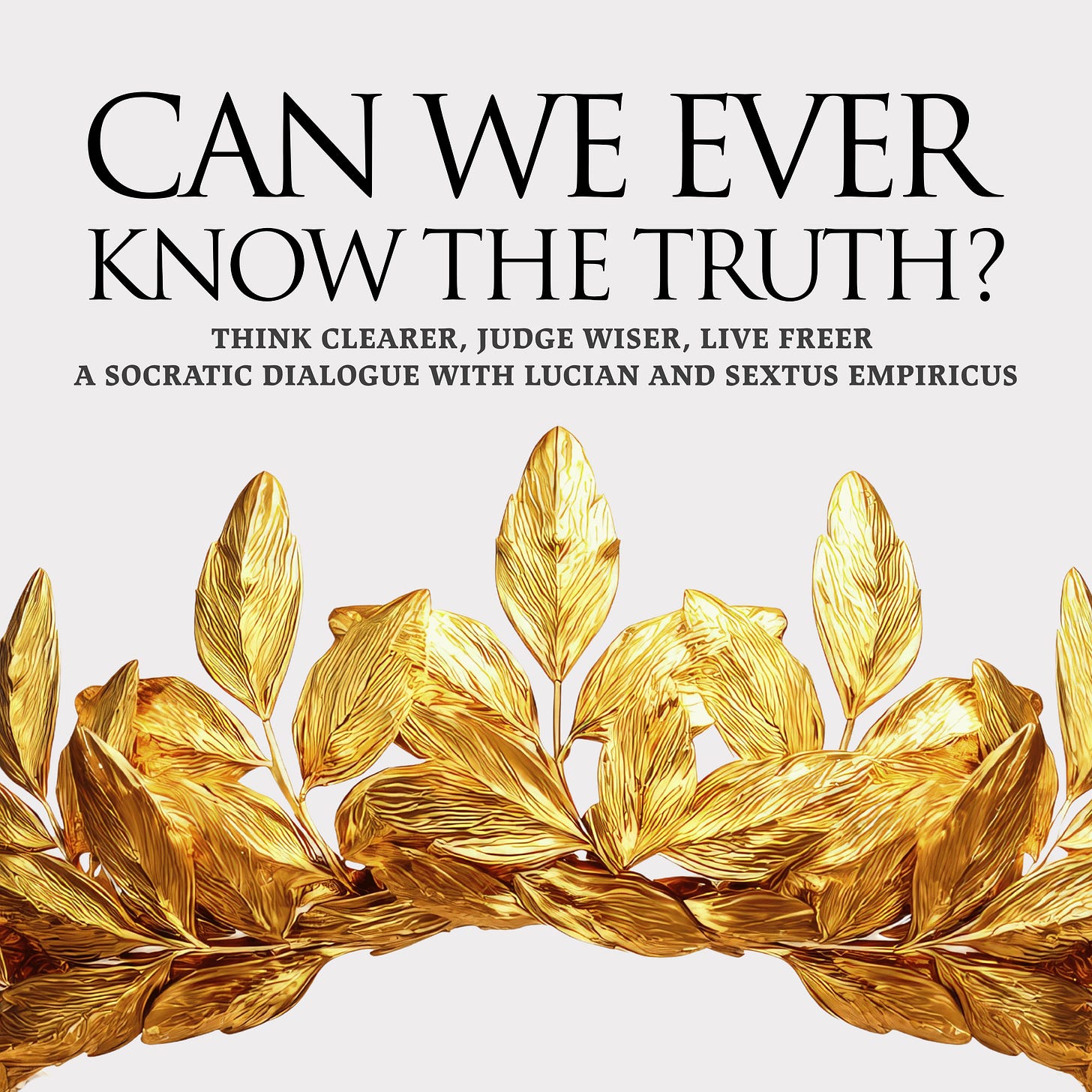Can we ever know the truth?
What is the only sure hope for discovering truth?
If we wish to live well, should we not first know what is true? And if so, how do we separate truth from the countless lies that surround us? Is there a tool, a method, or a gift that can serve as our guide?
“This alone is your sure and steady hope for the discovery of truth, and there is no other: your ability to judge and to distinguish lies from truth, to weigh arguments and to see which are sound and which are worthless. If you possess such ability and skill, you may proceed to examine whatever is said. Otherwise, you will find yourself carried away like a straw in the wind or running like a sheep behind the sprout toward which it is driven.”
Lucian, Hermotimus
Do you hear what Lucian tells us? That the only safeguard for truth lies not in the words of teachers, nor in sacred books, nor in the traditions of cities — but in your own ability to test, judge, and discern.
But how do we judge?
Consider this:
When someone flatters you, do you immediately believe their words, or do you ask, “What do they hope to gain?”
When a politician makes a promise, do you measure it against their past deeds, or do you accept it as a sweet melody?
When your own mind whispers something comforting, do you stop to ask, “Is this truly so, or do I wish it to be so?”
Is it not clear that reason, when awake, is like the sun that separates shadows from substance?
Let us begin this inquiry together. Take a moment now: write down one belief you have held as true. Then, ask yourself: What evidence supports it? What evidence challenges it?
If you find yourself uncertain, do not despair. For to be aware of uncertainty is already a step toward truth, while to believe blindly is to live in falsehood.
Can you weigh arguments, or are you carried away by them?
When someone speaks with eloquence, do you admire their words more than their truth? If a speech is clothed in beauty, do you forget to test whether it is sound?
“And if you happen to acquire such ability and skill, then you may proceed to examine what is said. Otherwise, know that nothing will prevent you from being carried away like straw before the wind, or from running like a sheep behind the sprout that is held before you.”
Lucian, Hermotimus
Lucian warns us with two images:
• the straw, light and directionless, blown wherever the wind commands,
• the sheep, blindly following a sprout without thought.
Now let us ask:
Are we not often like these? When a friend insists passionately on their opinion, do we not sometimes nod along, simply because their voice is stronger?
When the crowd shouts, do we not feel the pull to join, even before examining whether they shout for truth or for folly?
If you cannot weigh arguments, you are not a free soul — you are a straw in another man’s breath, a sheep beneath another’s rod.
Think of a time when you were persuaded by someone, perhaps a teacher, a leader, a friend.
Ask yourself:
Did I believe because the words were true, or because they were sweet? Was I convinced by evidence, or carried away by the force of emotion? Write this memory down. Then, re-examine it.
If you find that you followed the sprout, smile gently at yourself, for to recognize the error is already to begin walking toward truth.
Thank you for beginning this journey with Can We Ever Know the Truth?.
The pages you are reading are offered freely as an introduction. To continue the journey and explore the complete dialogue, reflections, and exercises, the full book is available for purchase. →
May these first steps awaken in you the same question Socrates once asked:
“Am I living in truth, or in shadows?”



